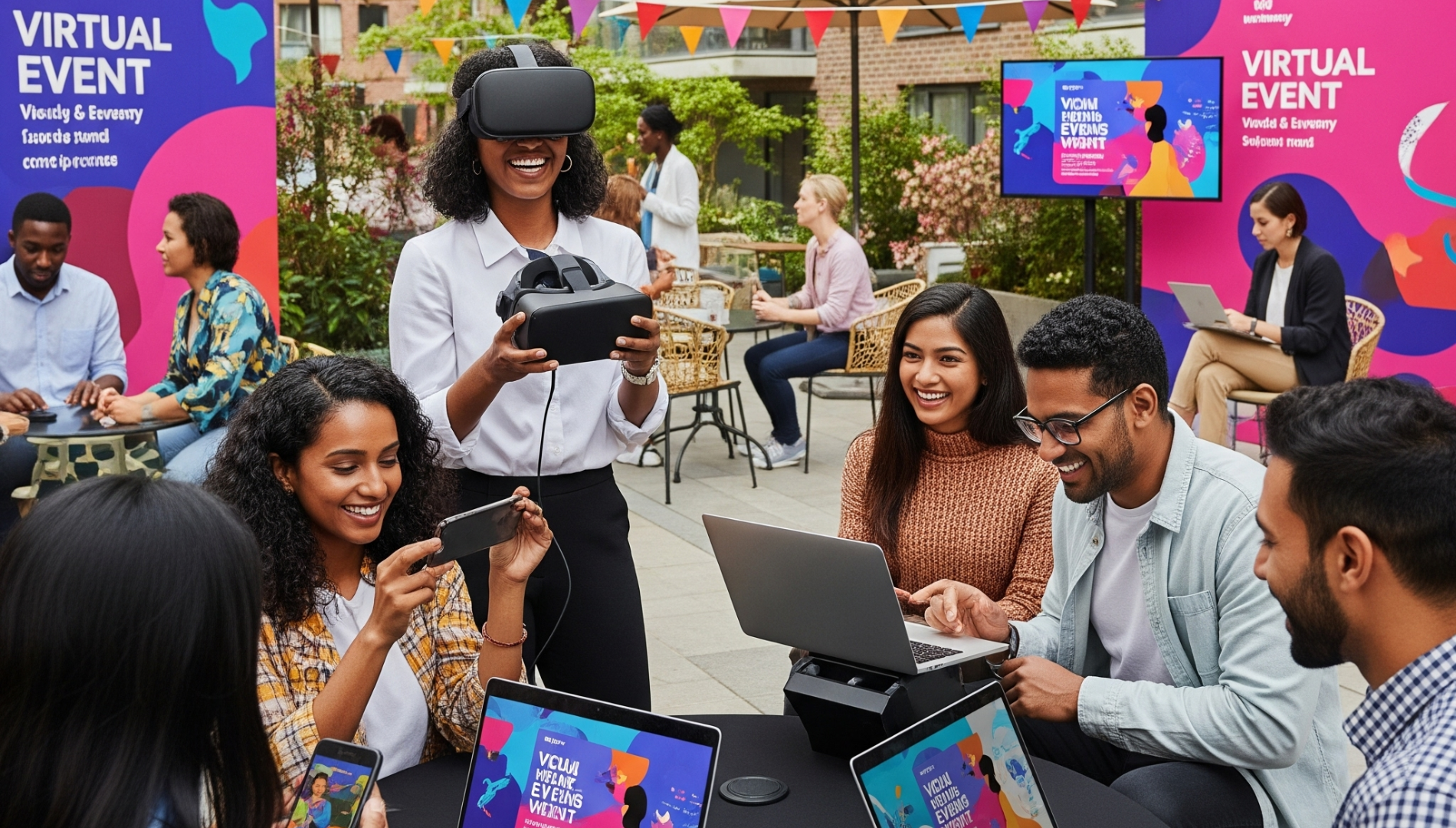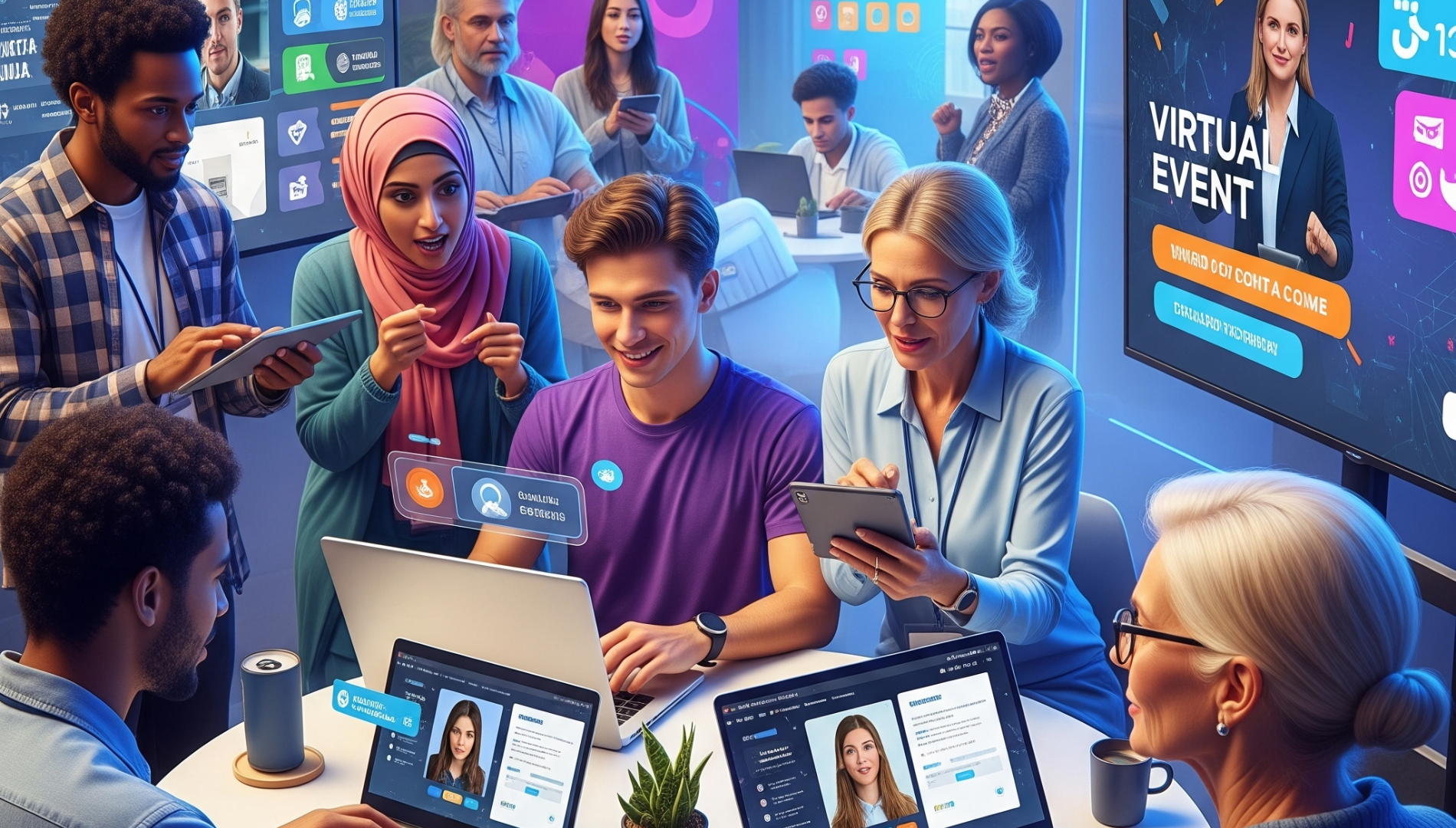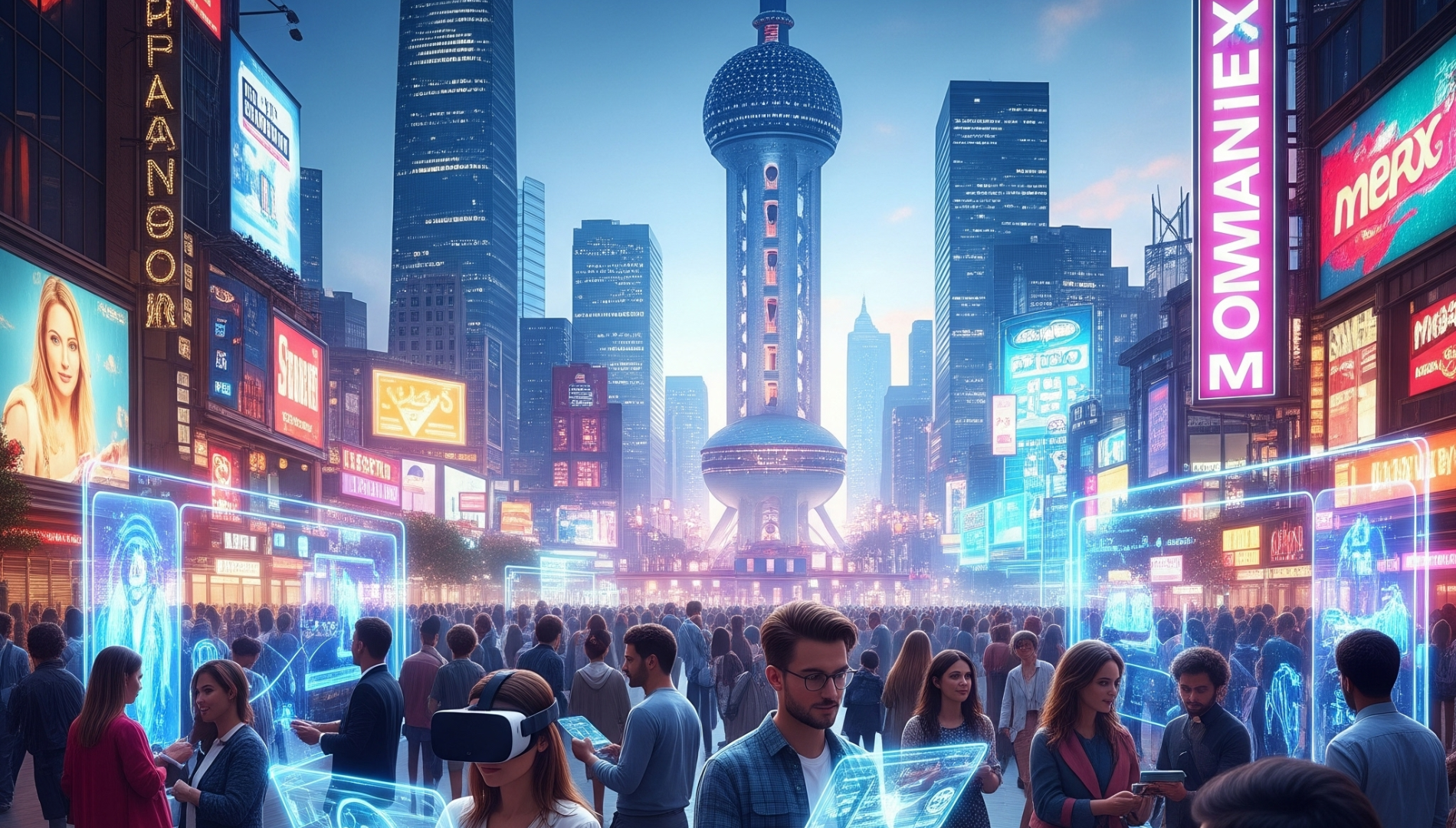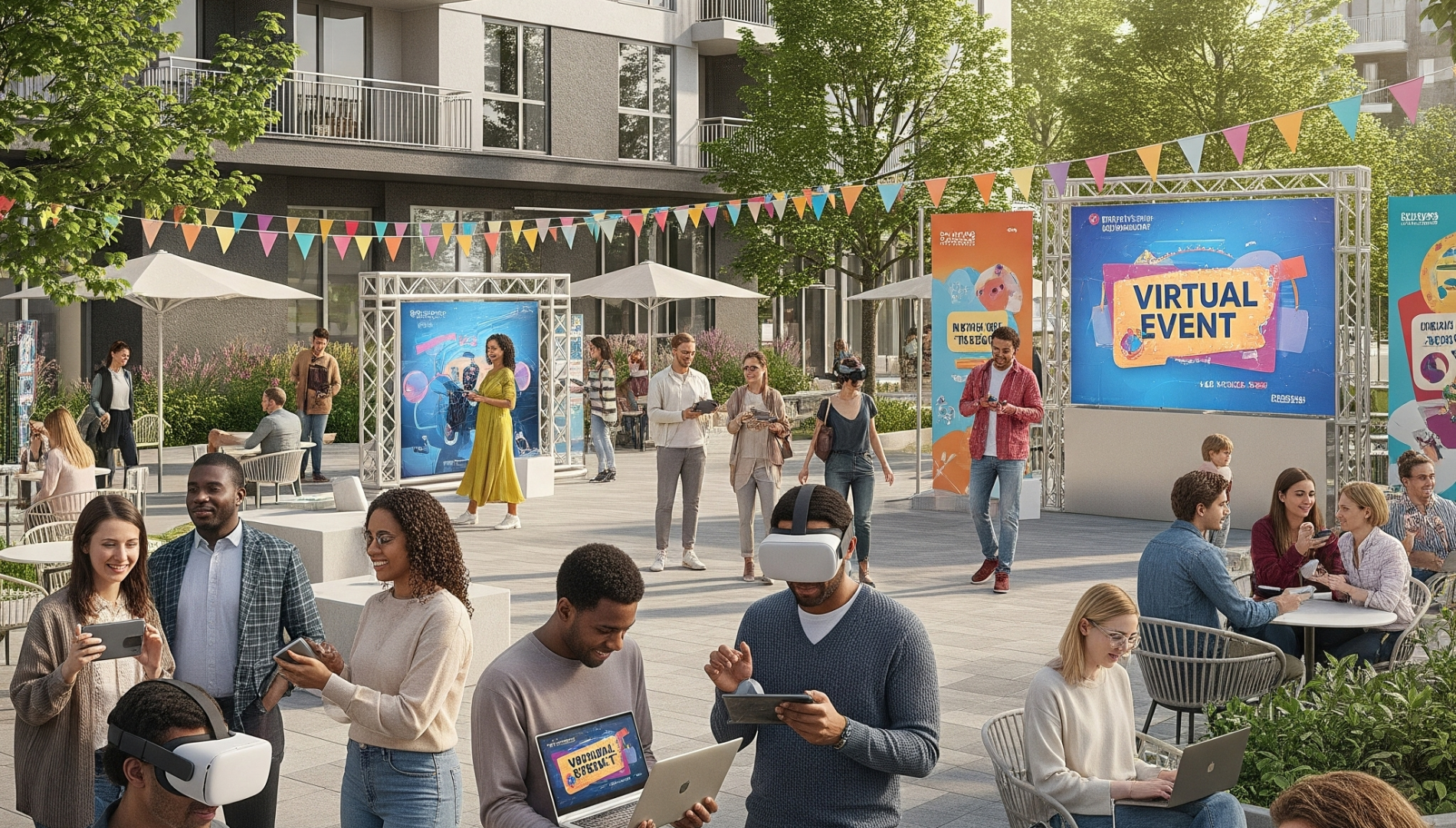Virtual Event Marketing






What is Virtual Event Marketing?
Virtual Event Marketing involves promoting and hosting events in a digital format, such as webinars, online conferences, live streams, and virtual trade shows. It's a powerful way to connect with audiences remotely, engage them in real-time, and deliver value without the constraints of physical location.
Why is Virtual Event Marketing Important?
In an increasingly digital world, virtual events offer flexibility and broad reach. Here’s why they are essential:
- Global accessibility: Attendees can join from anywhere, expanding your reach.
- Cost-effectiveness: Eliminates venue, travel, and accommodation costs.
- Increased engagement: Use live chat, polls, and Q&A to interact with audiences.
- Scalable: Easily accommodate small or large numbers of attendees.
- Data-rich: Gather detailed insights and analytics on attendee behavior.
Types of Virtual Events
- Webinars: Educational sessions with interactive features like Q&A and polls.
- Virtual conferences: Multi-session events with speakers, panels, and networking.
- Live streams: Real-time video content via platforms like YouTube, Facebook, or Zoom.
- Virtual trade shows: Digital booths, demos, and exhibitor interaction.
- Hybrid events: Blend physical and virtual experiences for broader participation.
Tips for a Successful Virtual Event
- Promote early and often using email, social media, and ads
- Choose the right platform with features that suit your event goals
- Engage attendees with interactive content and live participation
- Provide clear instructions and technical support for participants
- Follow up with attendees and share recordings or summaries
Conclusion
Virtual Event Marketing is a dynamic way to engage with your audience, share knowledge, and build brand awareness in a digital-first world. With the right strategy and tools, you can create memorable and impactful experiences that drive business results.
Event Promotion
Promote and market your virtual events to a wider audience.
Engagement Strategies
Increase interaction and participation during virtual events.